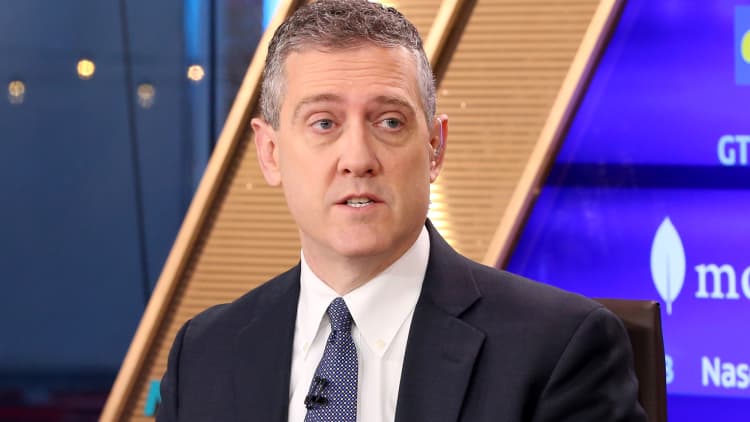The Federal Reserve should be providing markets more information about what is influencing monetary policy, the head of the central bank's Cleveland district said Friday.
Loretta Mester's remarks come at a time when the market and the Fed are out of line regarding the path of interest rates this year. Traders widely expect two rate cuts this year, while Fed officials have said repeatedly that they think policy is fine where it is now.
Speaking during a Fed-sponsored event in New York, Mester said in prepared remarks that when the two sides are not in sync, "policymakers shouldn't just capitulate to the market." They should, however, "be open to reassessing their view of the economy based on all incoming information, including the views of participants in the financial markets."
"We have to be open to the possibility that the markets' view may be more in alignment with fundamentals than the policymakers' view," she added.
Longer statements
Mester said the policymaking Federal Open Market Committee's post-meeting statement as one example.
Under current Chairman Jerome Powell, the communications have gotten considerably shorter, to the point where they almost completely fit on one side of a standard sheet of paper. The January statement, for instance, was just 311 words. The last meeting under former Chair Janet Yellen, in January 2018, saw a 420-word statement, and it was not unusual for the documents to run over 500 words in that era.
In place of more written detail, Powell has held news conferences after each meeting, instead of quarterly as Yellen and Ben Bernanke did.
Mester called the January statement "pretty sparse" and said the FOMC might be able to avoid more confusion by providing greater detail.
"What I'm advocating would result in a longer statement – which may not be fashionable in the age of Twitter. But I think it would help us escape the statement's 'Hotel California' problem: words check in but they don't check out," she said.
Longer statements might alleviate the market's practice of looking for subtle word changes to get larger clues about the Fed's intentions.
"If we used more words to explain things, each word would carry less weight," Mester said. "The language would be less boilerplate. This would free us to explain our rationale and change the statement's language productively from meeting to meeting without fear of sending the wrong message."
Mester's speech did not address specific policy views. Several of her fellow officials have spoken to CNBC in recent days and said they do not believe a rate cut is needed at this time.



